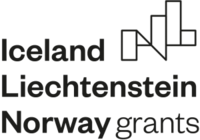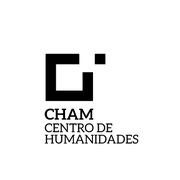Marine Lexicon: Difference between revisions
No edit summary |
No edit summary |
||
| Line 5: | Line 5: | ||
[[File:Header_ML_cropped_EN.jpg|1000px|centre|link=http://marinelexicon.fcsh.unl.pt/]]<br /> | [[File:Header_ML_cropped_EN.jpg|1000px|centre|link=http://marinelexicon.fcsh.unl.pt/]]<br /> | ||
<br /> | <br /> | ||
[[Image:EEA_grants@2x-300x210.png|200px |link=https://eeagrants.org |alt=Alt text|EEA Grants]] [[Image:LOGO CHAM 2018 Lettering.png|180px|link= | [[Image:EEA_grants@2x-300x210.png|200px |link=https://eeagrants.org |alt=Alt text|EEA Grants]] [[Image:LOGO CHAM 2018 Lettering.png|180px|link=https://cham.fcsh.unl.pt/en/home.php |alt=Alt text|CHAM – Centre for the Humanities]][[File:Logo UiB_EN.jpg|350px |link=https://www.uib.no/en/universitymuseum|alt=Alt text|University Museum of Bergen]][[File:NIFU logo_en.png|190px |link=https://www.nifu.no/en/|alt=Alt text|NIFU - Nordic Institute for Studies in Innovation, Research and Education]] | ||
[http://marinelexicon.fcsh.unl.pt/ Marine Lexicon] is a cooperation initiative between [http://www.cham.fcsh.unl.pt/default.aspx/ CHAM - Centre for the Humanities] in Portugal and the [https://www.uib.no/en/universitymuseum/ University Museum of Bergen] and [https://www.nifu.no/en/ NIFU] (Nordic Institute for Studies in Innovation, Research and Education) in Norway, funded by [https://eeagrants.org/ EEA Grants] and CHAM – Centre for the Humanities, aiming at the construction of a thesaurus of European common names of marine mammals (cetaceans, seals and sea lions, sirenians, polar bear and otter), symbolic elements (sea monsters, hybrid beings, folklore creatures) represented in the early modern age (15<sup>th</sup>-18<sup>th</sup> centuries) and place names related to the exploitation of marine mammals.<br /> | [http://marinelexicon.fcsh.unl.pt/ Marine Lexicon] is a cooperation initiative between [http://www.cham.fcsh.unl.pt/default.aspx/ CHAM - Centre for the Humanities] in Portugal and the [https://www.uib.no/en/universitymuseum/ University Museum of Bergen] and [https://www.nifu.no/en/ NIFU] (Nordic Institute for Studies in Innovation, Research and Education) in Norway, funded by [https://eeagrants.org/ EEA Grants] and CHAM – Centre for the Humanities, aiming at the construction of a thesaurus of European common names of marine mammals (cetaceans, seals and sea lions, sirenians, polar bear and otter), symbolic elements (sea monsters, hybrid beings, folklore creatures) represented in the early modern age (15<sup>th</sup>-18<sup>th</sup> centuries) and place names related to the exploitation of marine mammals.<br /> | ||
Latest revision as of 07:20, 14 May 2024
Marine Lexicon is a cooperation initiative between CHAM - Centre for the Humanities in Portugal and the University Museum of Bergen and NIFU (Nordic Institute for Studies in Innovation, Research and Education) in Norway, funded by EEA Grants and CHAM – Centre for the Humanities, aiming at the construction of a thesaurus of European common names of marine mammals (cetaceans, seals and sea lions, sirenians, polar bear and otter), symbolic elements (sea monsters, hybrid beings, folklore creatures) represented in the early modern age (15th-18th centuries) and place names related to the exploitation of marine mammals.
For now, words and expressions in 14 languages, including old versions of the respective languages, are collected in a thesaurus. All are languages from countries and regions with a coastal line. The thesaurus is presented here, allowing scholars and the public to search within the true ocean of possibilities that is the European vocabulary about marine mammals.
Thesaurus
- Marine mammals
- Mythical creatures
- Activities related to marine mammals
- Toponomy
- Zooarchaeology
- Historical sources
Through the Agreement on the European Economic Area (EEA), Iceland, Liechtenstein and Norway are partners in the internal market with the Member States of the European Union. As a means to promote a continuous and balanced strengthening of economic and trade relations, the parties to the EEA Agreement have established a multi-annual Financial Mechanism, known as EEA Grants. The EEA Grants aim to reduce social and economic disparities in Europe and to strengthen bilateral relations between these three countries and the beneficiary countries. For the period 2014-2021, a total contribution of €2.8 billion has been agreed for 15 beneficiary countries. Portugal will benefit from an amount of €102.7 million. Find out more at eeagrants.gov.pt.
- Working together for a green, competitive and inclusive Europe.





